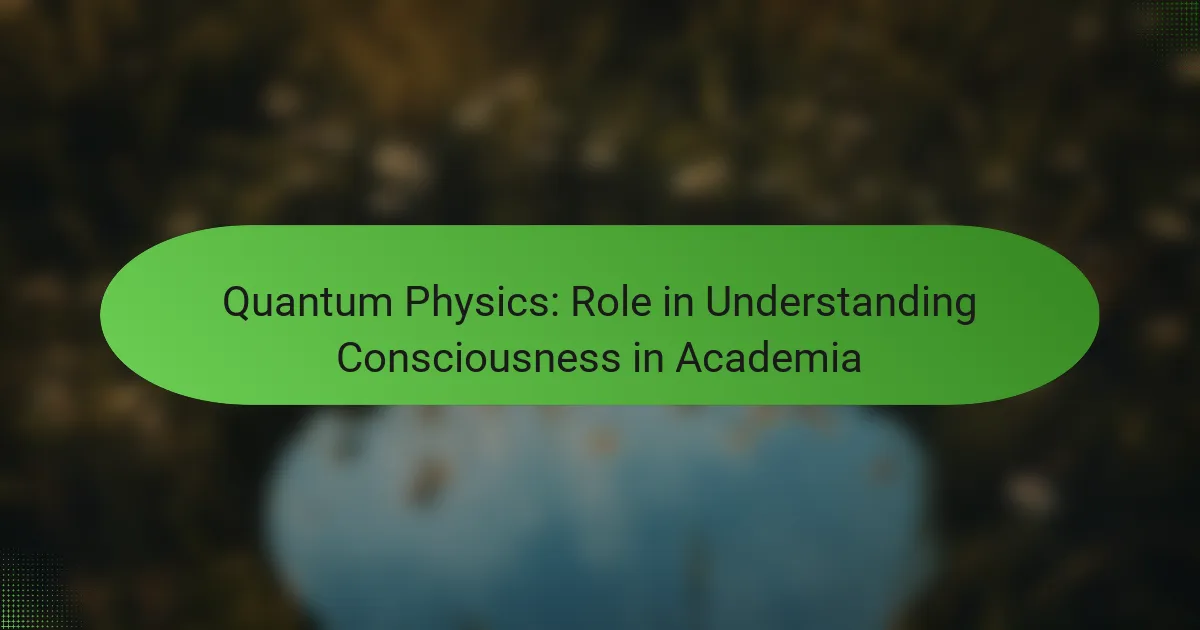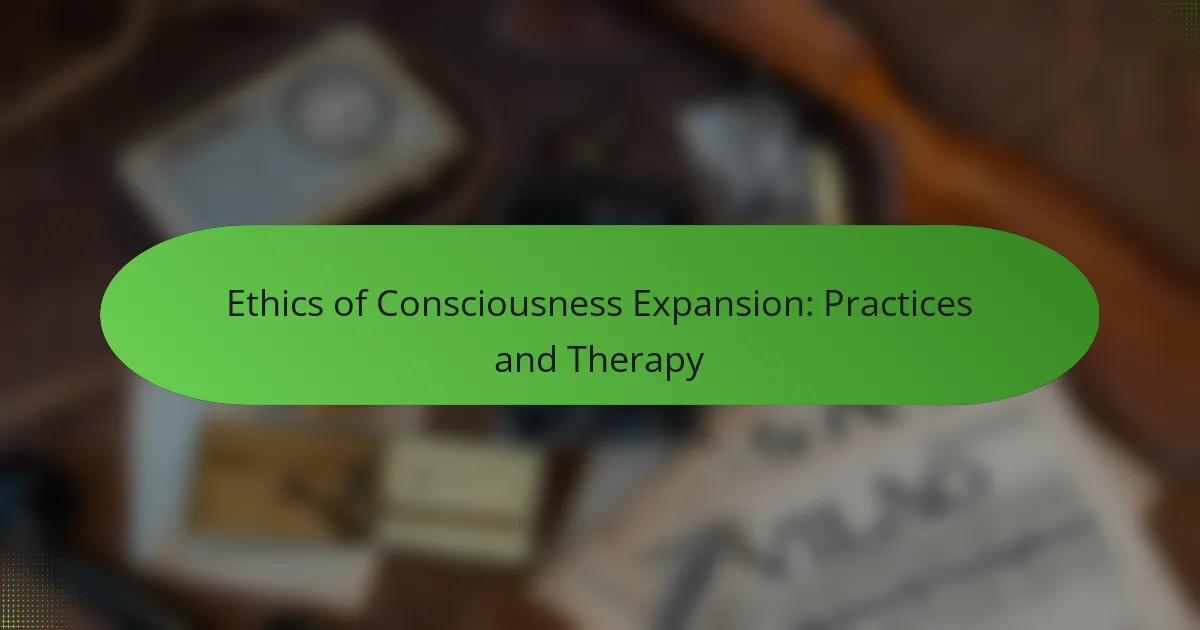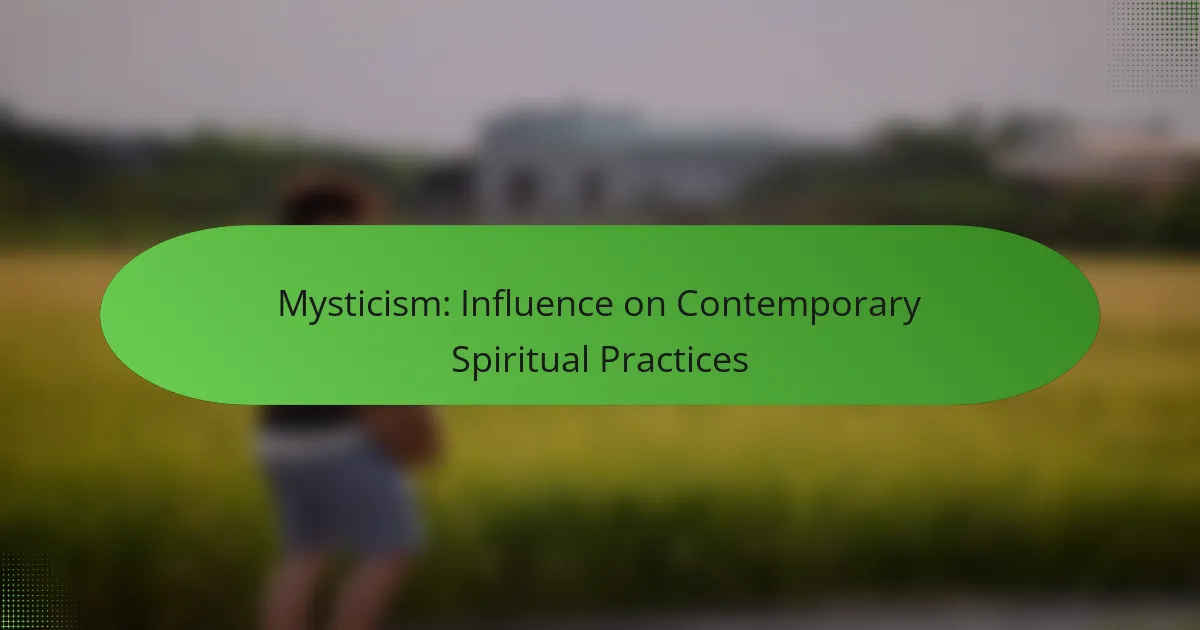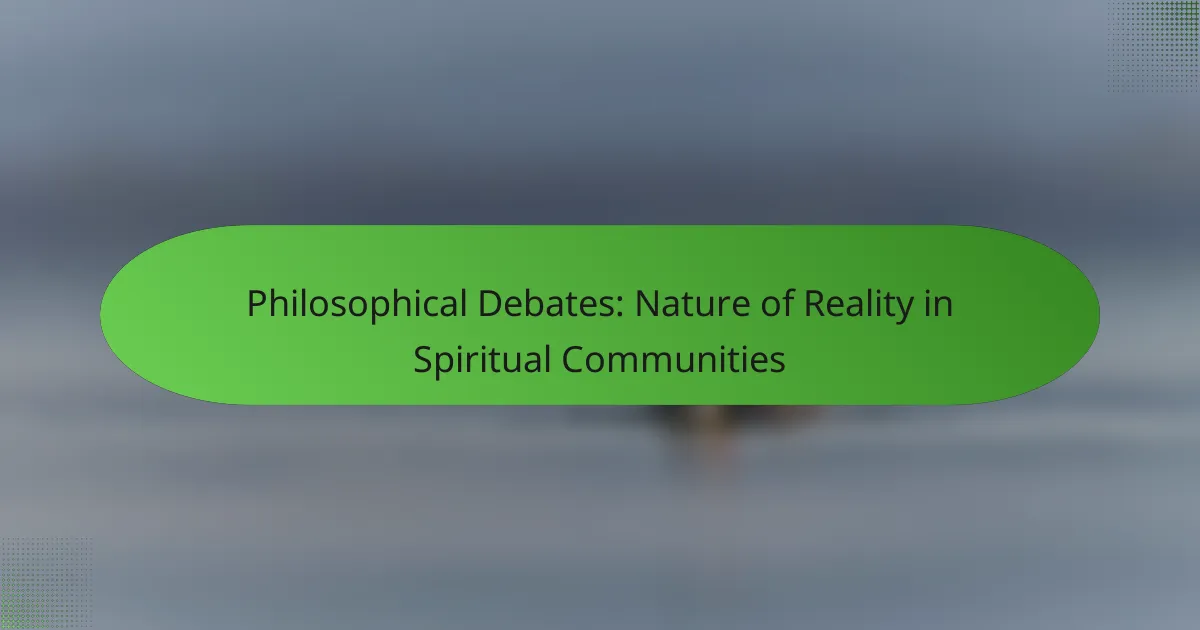Quantum physics offers intriguing insights into the nature of consciousness, proposing that phenomena such as entanglement and wave function collapse may underlie cognitive processes. This intersection of disciplines invites academic exploration into how quantum mechanics might illuminate aspects of consciousness that remain elusive under classical physics. As scholars debate these theories, they seek to understand the profound connections between the mind and the universe.

How Does Quantum Physics Explain Consciousness?
Quantum physics suggests that consciousness may arise from quantum processes, particularly through phenomena like entanglement and wave function collapse. These concepts propose that the mind could be interconnected with the universe at a fundamental level, influencing our awareness and perception.
Quantum entanglement and consciousness
Quantum entanglement refers to the phenomenon where particles become interconnected, such that the state of one instantly influences the state of another, regardless of distance. Some theorists propose that this interconnectedness could extend to consciousness, suggesting that our thoughts and experiences are linked to a broader quantum field. This idea raises intriguing questions about the nature of individual consciousness and its potential connections to collective awareness.
For instance, if consciousness is entangled, it might imply that our thoughts can influence others’ minds, leading to shared experiences or insights. This perspective challenges traditional views of individuality and suggests a more interconnected understanding of human consciousness.
Wave function collapse and awareness
Wave function collapse is a key concept in quantum mechanics, describing how a quantum system transitions from multiple potential states to a single observed state upon measurement. Some researchers argue that this collapse could be related to conscious observation, implying that awareness plays a crucial role in determining reality. In this view, consciousness is not merely a passive observer but an active participant in shaping the universe.
This relationship raises questions about the implications of consciousness on decision-making and perception. If awareness influences wave function collapse, it suggests that our choices and intentions might have a tangible impact on the physical world, blurring the lines between mind and matter.
Consciousness as a quantum process
Some theories propose that consciousness itself operates as a quantum process, suggesting that mental states arise from quantum computations within the brain. This perspective posits that the brain’s neural activity may involve quantum phenomena, enabling complex cognitive functions and self-awareness. Such theories challenge conventional neuroscience, which typically views consciousness as a purely classical process.
Understanding consciousness as a quantum process could open new avenues for research and technology, potentially leading to advancements in artificial intelligence and cognitive science. However, this approach remains speculative and requires further empirical validation to establish a clearer connection between quantum mechanics and conscious experience.

What Are the Key Theories Linking Quantum Physics and Consciousness?
Key theories connecting quantum physics and consciousness suggest that quantum processes may play a crucial role in the workings of the mind. These theories propose mechanisms through which quantum phenomena could influence cognitive functions and subjective experiences.
Orch-OR theory by Roger Penrose
The Orch-OR (Orchestrated Objective Reduction) theory, proposed by physicist Roger Penrose and anesthesiologist Stuart Hameroff, posits that consciousness arises from quantum computations in neuronal microtubules. According to this theory, these microtubules facilitate quantum states that collapse in a way that produces conscious experience.
This theory emphasizes the importance of quantum coherence and suggests that the brain’s structure allows for these quantum processes to occur, potentially explaining the non-computational aspects of consciousness. However, it remains controversial, as empirical evidence supporting the theory is limited.
Quantum brain hypothesis
The quantum brain hypothesis suggests that quantum mechanics is fundamental to understanding brain function and consciousness. Proponents argue that quantum effects, such as superposition and entanglement, could explain complex cognitive processes that classical physics cannot adequately address.
This hypothesis encourages exploration of how quantum phenomena might influence neural activity and decision-making. While intriguing, it faces skepticism due to the challenges of demonstrating quantum effects at the biological scale of the brain.
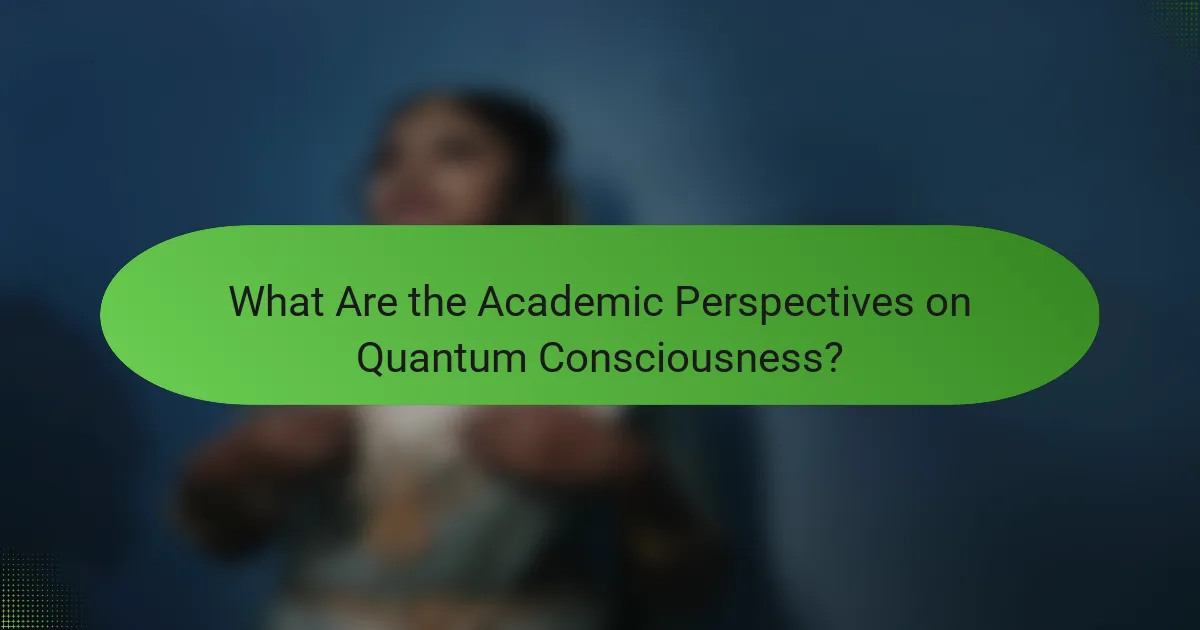
What Are the Academic Perspectives on Quantum Consciousness?
Academic perspectives on quantum consciousness explore the intersection of quantum physics and the nature of consciousness. Scholars debate whether quantum mechanics can explain aspects of consciousness that classical physics cannot, leading to diverse interpretations and theories.
Philosophical implications in academia
The philosophical implications of quantum consciousness challenge traditional views of mind and matter. Some theorists propose that consciousness may not be a byproduct of brain activity but rather a fundamental aspect of the universe, akin to space and time. This perspective raises questions about free will, identity, and the nature of reality itself.
Philosophers like David Chalmers and Eugene Wigner have contributed to this discourse, suggesting that consciousness might play a role in the collapse of quantum states. Such ideas encourage a reevaluation of the relationship between consciousness and physical processes, fostering interdisciplinary dialogue among physicists, philosophers, and cognitive scientists.
Scientific skepticism and debates
Scientific skepticism regarding quantum consciousness is prevalent, with many researchers questioning the validity of linking quantum mechanics to consciousness. Critics argue that the brain operates on a macroscopic scale, where classical physics predominates, making quantum effects negligible in cognitive processes. This skepticism is rooted in the lack of empirical evidence supporting quantum theories of consciousness.
Debates often center on the interpretations of quantum mechanics, such as the Copenhagen interpretation versus many-worlds theory. Each perspective offers different implications for consciousness, leading to ongoing discussions in academic circles. Researchers emphasize the need for rigorous experimental frameworks to validate or refute these theories, ensuring that claims about quantum consciousness remain grounded in scientific inquiry.
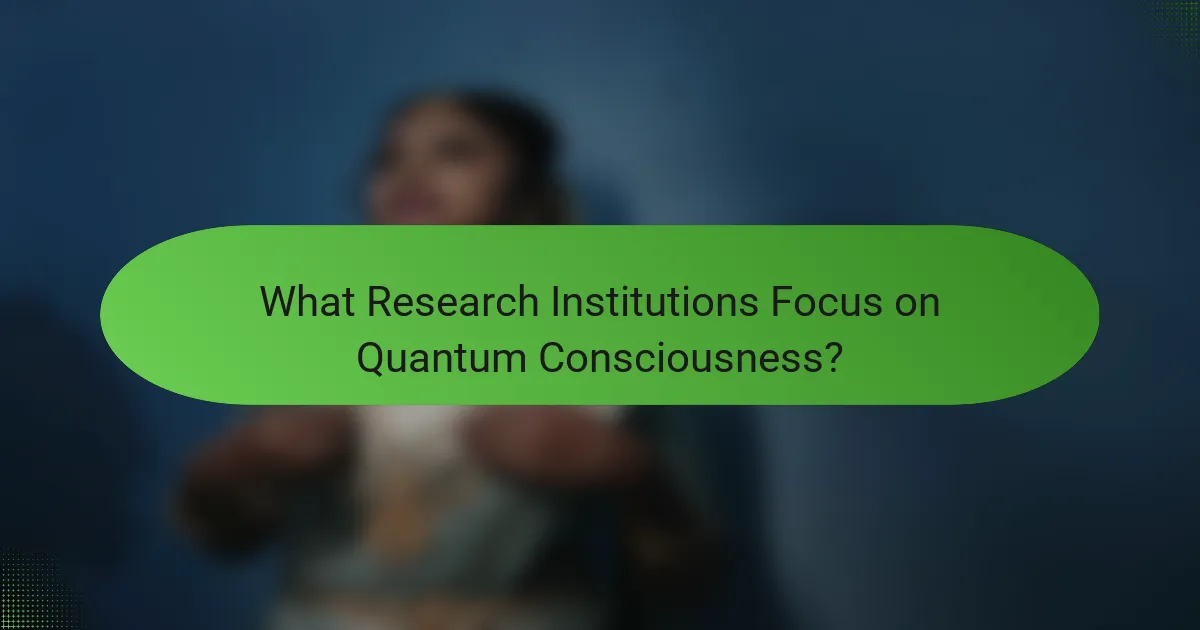
What Research Institutions Focus on Quantum Consciousness?
Several research institutions are dedicated to exploring the intersection of quantum physics and consciousness. These organizations investigate how quantum mechanics may provide insights into the nature of consciousness and its underlying processes.
Institute for Advanced Consciousness Studies
The Institute for Advanced Consciousness Studies is at the forefront of research into how quantum theories can explain aspects of human consciousness. This institute conducts interdisciplinary studies that combine neuroscience, psychology, and quantum physics to explore consciousness’s fundamental nature.
Researchers at this institute often engage in collaborative projects that involve theoretical modeling and experimental validation. They focus on understanding phenomena such as non-locality and entanglement, which may have implications for consciousness and cognitive processes.
Center for Quantum Consciousness
The Center for Quantum Consciousness specializes in the theoretical and experimental aspects of quantum mechanics as they relate to consciousness. This center aims to bridge gaps between quantum theory and cognitive science, offering a platform for innovative research and discussion.
One key area of focus is the role of quantum coherence in brain function, which researchers believe could shed light on how consciousness emerges. The center also hosts workshops and seminars to disseminate findings and encourage dialogue among scientists and philosophers interested in this complex topic.

What Are the Practical Applications of Quantum Consciousness Research?
Quantum consciousness research explores the intersection of quantum physics and the nature of consciousness, offering potential applications in various fields. This research may lead to advancements in technology, artificial intelligence, and cognitive science, reshaping our understanding of both machines and human cognition.
Impacts on artificial intelligence
Quantum consciousness research could significantly influence artificial intelligence (AI) by introducing new paradigms for machine learning and decision-making. For instance, quantum computing’s ability to process vast amounts of data simultaneously may enhance AI’s capacity to simulate human-like reasoning and creativity.
Moreover, integrating concepts from quantum consciousness could lead to the development of AI systems that better mimic human emotional and cognitive processes. This might involve creating algorithms that utilize quantum states to represent complex thoughts or emotions, potentially improving human-computer interactions.
Influence on cognitive science
In cognitive science, quantum consciousness research challenges traditional models of the mind by suggesting that consciousness may operate on quantum principles. This perspective could lead to new theories about perception, memory, and decision-making, offering deeper insights into how humans process information.
Additionally, understanding consciousness through a quantum lens may foster interdisciplinary collaboration, merging insights from physics, neuroscience, and psychology. Such collaboration could result in innovative experimental designs and methodologies, enhancing our comprehension of cognitive functions and their underlying mechanisms.
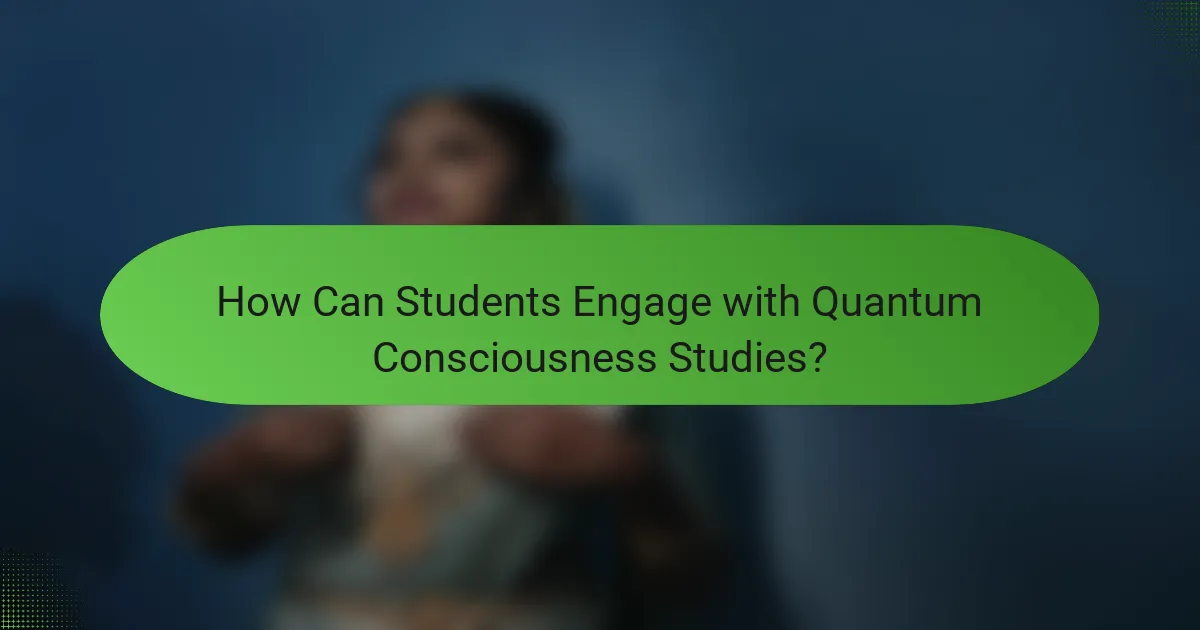
How Can Students Engage with Quantum Consciousness Studies?
Students can engage with quantum consciousness studies by exploring interdisciplinary programs that combine physics, philosophy, and cognitive science. This field invites inquiry into the nature of consciousness through the lens of quantum mechanics, encouraging innovative thinking and research.
Relevant academic programs
Many universities offer programs that delve into quantum consciousness, often found within departments of physics, neuroscience, or philosophy. Students should look for interdisciplinary degrees or minors that emphasize both quantum theory and cognitive studies.
Examples of relevant programs include a Bachelor’s or Master’s in Quantum Physics with a focus on consciousness studies, or a Philosophy program that includes courses on the philosophy of mind and quantum mechanics. Institutions like MIT, Stanford, and the University of California, Berkeley are known for their strong offerings in these areas.
Research opportunities and internships
Students can enhance their understanding of quantum consciousness through research opportunities and internships at academic institutions or research facilities. Engaging in projects that explore the intersection of quantum mechanics and consciousness can provide practical experience and valuable insights.
Look for summer internships or research assistant positions in labs focusing on quantum cognition or consciousness studies. Networking with professors and attending relevant conferences can also lead to opportunities in this emerging field.
